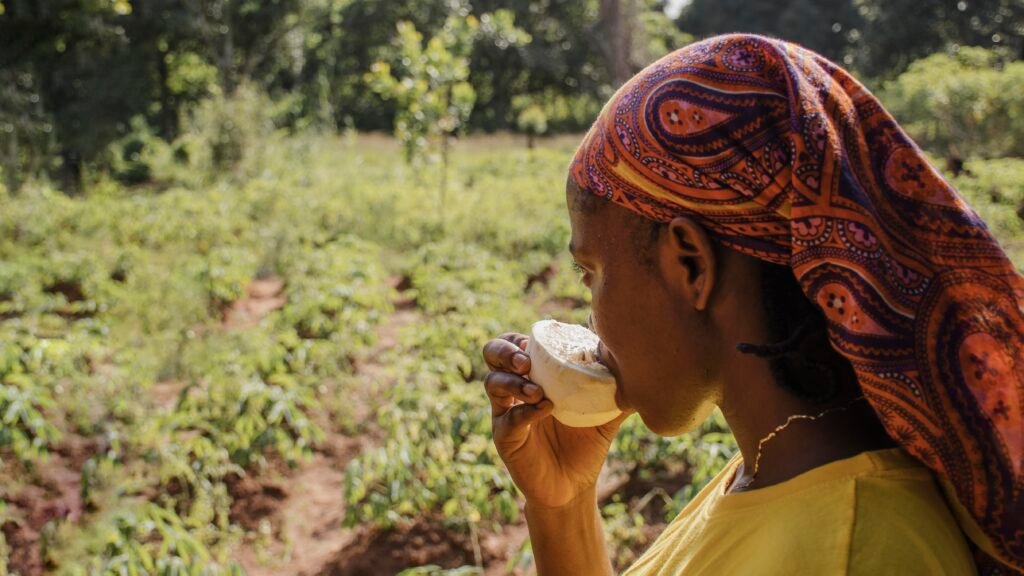Table of Contents
ToggleIntroduction – Nigerian Coffee
Nigerian coffee has a rich history, rooted in our colonial past, local farming, and potential for future growth. Whether you’re a coffee enthusiast or just curious about the Nigerian landscape, this post will explore three historical facts about Nigerian coffee that might surprise you.
Coffee is not just a global obsession. It is also the start of most coffee drinkers’ day. While countries like Ethiopia, Brazil, and Colombia dominate the coffee conversation, Nigeria has a coffee story that needs telling. Though it may not be as famous
Most Nigerians think of tea, cocoa, or even palm wine before coffee in Nigerian beverages. But coffee has been part of Nigeria’s agricultural story for over a century. While it doesn’t have the widespread recognition of Ethiopian or Kenyan coffee, Nigeria’s coffee culture is quietly growing, especially in urban centers like Lagos and Abuja, where coffee shops and cafés are popping up.
How did coffee first arrive in Nigeria, and what’s the current state of the coffee industry here? Below are three historical facts that tell the story of Nigerian coffee and its journey from introduction to potential revival.

1. Coffee Farming in Nigeria Started in the Early 1900s
Nigeria’s coffee journey began in the early 1900s, during British colonial rule. At the time, the British were keen to diversify agricultural production in their colonies, and they saw Nigeria’s fertile soil and favourable climate as perfect for growing coffee. They introduced coffee cultivation in regions such as Taraba, Cross River, and the Mambilla Plateau, where the highlands provided the right conditions for coffee farming.
The coffee that thrives in Nigeria is mostly robusta, a bean known for its strong, bitter taste and higher caffeine content. Unlike the more popular arabica beans found in places like Ethiopia, robusta beans are typically used in espresso blends and instant coffee due to their strong flavour profile. While Nigerian coffee production never reached the heights of some of its African neighbours, it quickly became a staple crop for many local farmers who relied on it for their livelihoods.
Farmers in regions like the Mambilla Plateau and Cross River continue to cultivate coffee to this day, though mostly on a small scale. With the rise of local coffee consumption in Nigeria, this could change.

2. The Rise and Fall of Nigerian Coffee Exports
In the 1960s and 1970s, Nigeria experienced a brief coffee boom, with exports growing as the government identified coffee as a valuable cash crop alongside cocoa, palm oil, and groundnuts. During this time, Nigeria became a notable player in the global coffee market, exporting robusta beans to Europe, the United States, and other African nations.
However, Nigeria’s coffee export boom was short-lived. Several factors contributed to the decline, including inconsistent government policies, a lack of investment in infrastructure, and the rise of competition from other African coffee-producing nations, such as Ethiopia, Uganda, and Ivory Coast. Additionally, many coffee farmers lacked access to modern farming techniques and equipment, which led to lower yields and poorer-quality beans.
By the 1980s, Nigeria’s coffee industry had largely collapsed, and coffee exports dropped drastically. Today, Nigeria’s contribution to the global coffee market is minimal, and many coffee farmers have switched to other crops or rely solely on domestic sales. Despite this decline, there are still pockets of coffee production in Nigeria, and with the right support, the industry has the potential to bounce back.

3. The Untapped Potential of Nigeria’s Coffee Industry
While Nigerian coffee may not be as well-known as Ethiopian or Kenyan coffee, it holds incredible potential. Coffee farming in regions like the Mambilla Plateau and Taraba could benefit from more investment, better infrastructure, and access to global markets. With the growing global interest in specialty coffee, Nigerian robusta beans could find their place among coffee enthusiasts looking for new and unique flavours.
With the rise of coffee culture in Nigeria, urban centers like Lagos and Abuja are opening more coffee shops and cafes. Nigerian coffee entrepreneurs are now exploring the potential for locally grown coffee, focusing on sustainability and quality.
Will there be a renewed government interest in reviving the coffee sector as part of efforts to diversify the economy beyond oil? With more awareness, better farming practices, and a focus on quality, Nigerian coffee could begin to compete on the international stage.
Conclusion: A Promising Future for Nigerian Coffee
While Nigerian coffee may not yet have the global recognition it deserves, its rich history and untapped potential offer exciting possibilities for the future. From its humble beginnings in the early 1900s to its brief export boom and current revival efforts, Nigerian coffee is a story of resilience and opportunity. As coffee culture grows in Nigeria and more attention is paid to local production, there’s hope that Nigerian coffee can make a name for itself on the world stage.
So, the next time you enjoy a cup of coffee, consider the story behind it – and maybe one day, that story will include beans from the beautiful highlands of Nigeria.
Find all your Nigerian coffee needs in the store.

esewalter
Mom | Yoga Teacher | Coffee Blogger | Legal Mind. I explore coffee's journey from farm to cup and especially how you can start your home brewing journey.




